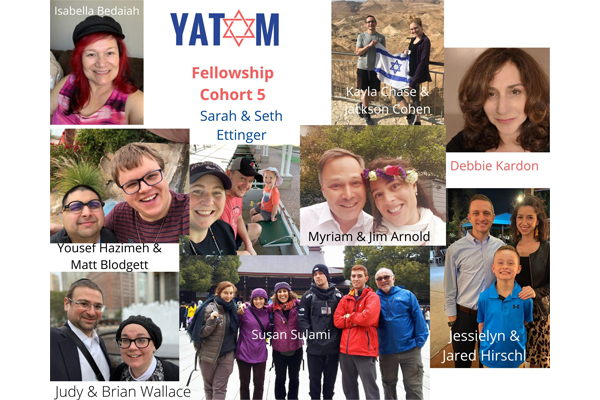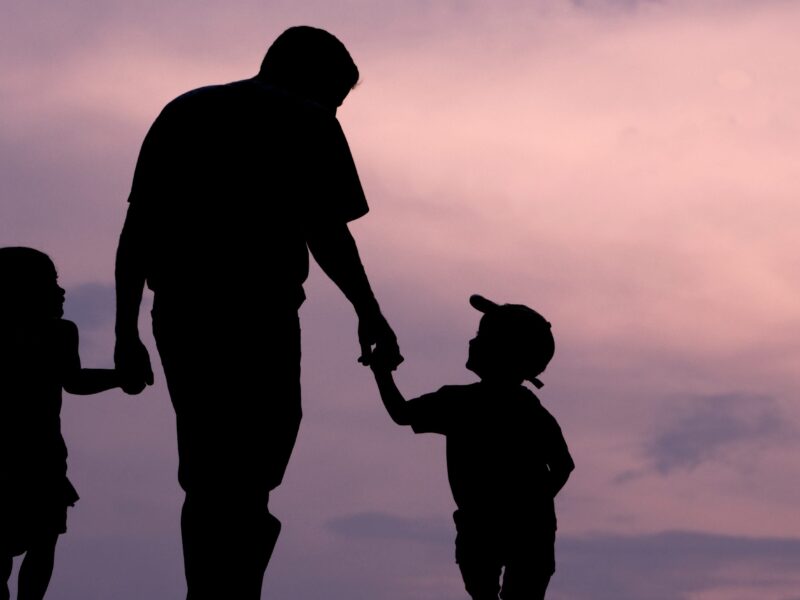Have you ever thought about fostering or adopting a child but didn’t know where to start? Welcome to Yatom: The Jewish Foster & Adoption Network.
Yatom is a nationwide program with its base here in the Valley. Rabbi Dr. Shmuly Yanklowitz, founder and president, started Yatom when he realized that the Jewish community at large was not participating in supporting vulnerable children. “In the Torah over and over, it stresses the importance of taking care of vulnerable children,” says Rabbi Shmuly. The name Yatom translates to “orphan in Hebrew.
Yatom is currently accepting applications for its sixth round of cohort families to participate in its fellowship program. The Yatom Family Fellowship is a nearly one-year program for families who have never fostered or adopted and are now looking to start their journey.
In his research, Rabbi Shmuly discovered three common barriers people have to starting the fostering or adoption process. The first barrier is often funding, the second is not knowing what to do, and the third is feeling alone in this journey.
“The fellowship was designed to respond to those three concerns,” says Rabbi Shmuly. “We give each family a stipend to support them financially, we give them education for the year, learning from various specialists in the field, including the Jewish piece, and we give them a community of people who are also going through the same process.”
This year, for the second time, Yatom will have a special track just for Valley residents. This program was made possible by a grant from the Jewish Community Foundation. Phoenix area fellows will participate in the national group via Zoom and also attend in-person gatherings.
If someone had already started the process to foster or adopt, or already are a foster or adoptive parent, they are not eligible for the fellowship, but they can apply for a Yatom microgrant to help offset expenses.
In terms of who can apply, Rabbi Shmuly says, “We have husbands and wives, gay couples, singles and interfaith families. In the case of interfaith, we ask that Jewish values are the driving value system of the home. So, it’s a very inclusive program.”
The fellows also need to start the licensing process with the state, which is a separate process, but Yatom can help guide them through it. While Yatom is not officially connected with the state’s foster care system, that is where the children come from for placement.
Rabbi Shmuly has fostered eight children with his wife, Shoshana. Because most of the children in the foster care system are Gentile, he stresses the importance of maintaining the child’s original culture and religion.
“I got in a little trouble with some right-wing, religious Jews over Christmas time because they saw a picture of me dressed as Santa Claus for my foster kids,” shares the rabbi. “They said a rabbi shouldn’t be dressed as Santa. But these kids knew Santa, and I wanted them to have an experience, so I gave them that.”
Part of the training during the fellowship includes racial and cultural diversity and Jewish thought around parenting, along with more formal information from experts in the foster care and adoption system including attorneys. When they finish the program, the hope is that they become ambassadors and share the experience and start conversations in the community.
As Rabbi Shmuly shares, “I always prepare families. This is not going to be easy to do, it’s very demanding, it’s very challenging, but it’s also one of the most rewarding things you could do – if you’re ready for it.”
If you are currently a foster or adoptive parent who could use some financial support to offset the expenses related to your caring for a vulnerable child, visit yatom.org/micro-grant-program.
For more information on the Family Fellowship Program, visit yatom.org/family-fellowship. The deadline to apply is mid-June.






